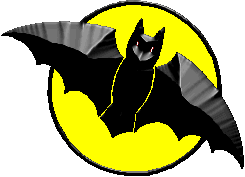|
|
|
| Owen: In 'The Resurrection Game'
you played Sister Mary Bliss, a counselor,
dominatrix, and zombie-killing
nun. Was she as much fun to portray as
it sounds?
Amy: It was! I had so much fun with that character. She was tough, sexy, good with weapons and whips. How could she not be fun? She was the only character in the movie that seemed to know what was going on. I enjoy playing strong females that don’t rely on others to save them. Owen: Another project that seemed like a hoot is 'Dr Horror's Erotic House of Idiots'. Do you think parody is tougher to pull of than the real thing? Amy: I definitely think parodies are harder. You really have to watch that you don’t cross the line between funny and stupid. And it’s very easy to beat a joke to death in a parody. I’ve seen so many parodies that had great ideas and should have been funnier than they were, but they didn’t know when to stop the joke. Fortunately Paul Scrabo made a good one that I was lucky enough to be a part of. Owen: You also have several directing credits including 'Were-Grrrl', 'Severe Injuries', and 'Spicy Sisters Slumber Party'. What have been the most important things you have learned about filmmaking from those trips behind the camera? Amy: I’ve learned that you really need to have a good crew that you work well with and depend on. I see so many filmmakers out there, who don’t have any crew, or they just have one other person to work with, and I feel so bad for them. It usually shows in the finished product. We’re lucky enough to have a great group of people that not only work well together, but we also have fun doing it. Not everyone is always available for every shoot, but there’s usually enough that we have all of our bases covered. Owen: As an actor what "actor sensitive" lessons do you think you bring to directing? Amy: I’ve learned to give the actors feedback. It’s not being a ‘diva’ if you need time to get into character, if you want to know your motivation or if a take didn’t feel right. Those are legitimate concerns of actors and it benefits a director to be sensitive to this. We do joke on the set a lot about the actors being ‘walking props’ but if you have bad acting, the most beautiful cinematography in the world isn’t going to matter. I was on a shoot where the director was so concerned about the camera and lighting that the other actor and I went through about a dozen read throughs without the director paying attention. When it was time to shoot, of course we were delivering the lines all wrong according to the director’s vision. It was very frustrating. Owen: You've described 'Were-Grrrl' as an anti-exploitation commentary on the hordes of over-sexed lesbian cheesecake films. What was the message you wanted to convey? Amy: It started as a joke. I was commenting on the scores of exploitation movies that looked exactly like the previous one. I wanted to do a movie that would lead you into thinking that you were getting a juicy lesbian scene and it cuts away while the action is happening. I actually wanted people to slam it on video counters because they didn’t get to see anything. I actually had a few males yell at me because of it. Owen: Since you often write, produce, and direct as well as star I was wondering if that is more a labor of love, a financial consideration, or a means to maintain control of the artistic vision? Amy: It is actually all three. When we fist started filming The Resurrection Game my husband, Mike Watt, was fresh out of film school and we just started filming. We had enough people helping us from his school that knew what they were doing that we really didn’t need too much outside help. Mike wrote and directed. Bill Homan went to an effects school so he took care of that, and I did what I could and learned a lot along the way. We worked well together and with some of the others that we brought into the Happy Cloud Family that we didn’t think of ever doing it any other way. We still don’t. It seems to work for us. Owen: You are also a regular on the convention circuit. Do you make a lot of industry contacts in venues like that? Are a lot of future film deals and offers born of those weekends? Amy: We’ve made most of our industry contacts on the convention circuit. The few that we’ve met in other ways we have then met face to face at conventions. I think conventions are a good way of making contacts and keeping your pulse on what’s going on in the industry. I’ve seen so many people on message boards and websites talk about how popular they or their project are and then you see them at a convention and no one cares and it’s obvious that they were stretching the truth, if not out right lying. But we usually have a great time. Catching up with good friends and people we only get to see once a year. And we’ve met some really great people at shows. Owen: Tell me a bit about your upcoming project 'Doomtown'? Amy: Doomtown is a dream project of ours. Mike wrote the script and it’s really good. It’s a Lovecraftian Comedy that should be a lot of fun to shoot. We’ve attached some great names to it. Including Amber Benson, Reggie Bannister, Mike Quinn, Brinke Stevens, Debbie Rochon, Jasi Cotton Lanier, and a few others. It’s a bigger budget than our usual projects so it’ll take a bit longer to organize, but I’m really looking forward to it. Owen: What other projects do you have lined up in the future? Amy: We have a couple straight horror movies coming up. We’ll be shooting Banshee this fall. Banshee is a slasher film with some interesting subtexts in it, but the gorehounds won’t be disappointed. We also have Razor Days in the schedule. Razor Days is a really intense psychological horror movie that is completely different from anything we’ve ever done before. And I’ll be doing another Spicy Sister’s documentary with a new group of outstanding women in horror. Happy Cloud Pictures is also hosting a Horror Con in Pittsburgh called Genghis Con. www.genghisconpa.com We’ve got some great guests lined up including Herschell Gordon Lewis, Joe Bob Briggs, Gunnar Hansen, Brinke Stevens, Debbie Rochon, Jasmin St. Clare, Lilith Stabs, April Monique Burill, Ryli Morgan and many others. Owen: I am also really intrigued by your feminist take on women in horror and making it a genre of empowerment. Do you think Outsider Cinema allows for greater freedom and impact than studio films? Amy: I think Outsider Cinema certainly gives a better opportunity for women. Studio films have so many constraints on them. Not just on the women, but everything from the script to the DVD has decisions made by people who don’t know movies at all. And don’t even like them. Outsider Cinema not only gives the filmmaker a chance to bring their vision to the final product uninterrupted, but also gives women more of a voice in that process. Women aren’t just the eye candy, though there’s plenty of that on their terms, they are integral to the project. Owen: Speaking of that tell me a bit about the Pretty-Scary website. Amy: Pretty-Scary was started to give women who love horror a place to go where we could discuss horror without being made to feel like we didn’t belong. Too many horror sites out there have an abundance of men who think that women are there only to meet them or aren’t worthy of giving opinions. We wanted a site where we wouldn’t get hit on immediately or put down and made to feel stupid. We have a great community that’s stuck with us through hacking and other server problems and I’m really proud to be a part of it. Owen: I am always intrigued by the rich and thriving Pittsburgh-based indie horror scene. Do you think it just keeps snowballing there thanks to the local influence of George Romero and Tom Savini? Amy: I hope so. I think that having Tom and Romero here does help the horror scene to thrive. A lot of young fans are drawn to Pittsburgh because of them, especially with the Effects School Tom has in Monessen, and some stay. Savini’s school is graduating great effects artists each year. A lot do move out to LA after graduation, but enough do relocate to Pittsburgh to try to get work here. I’m seeing more and more filmmaker’s making Pittsburgh movie, not just horror, and it’s really nice to see. Owen: And finally, what scares you in real life? Amy: Paying Bills! |







